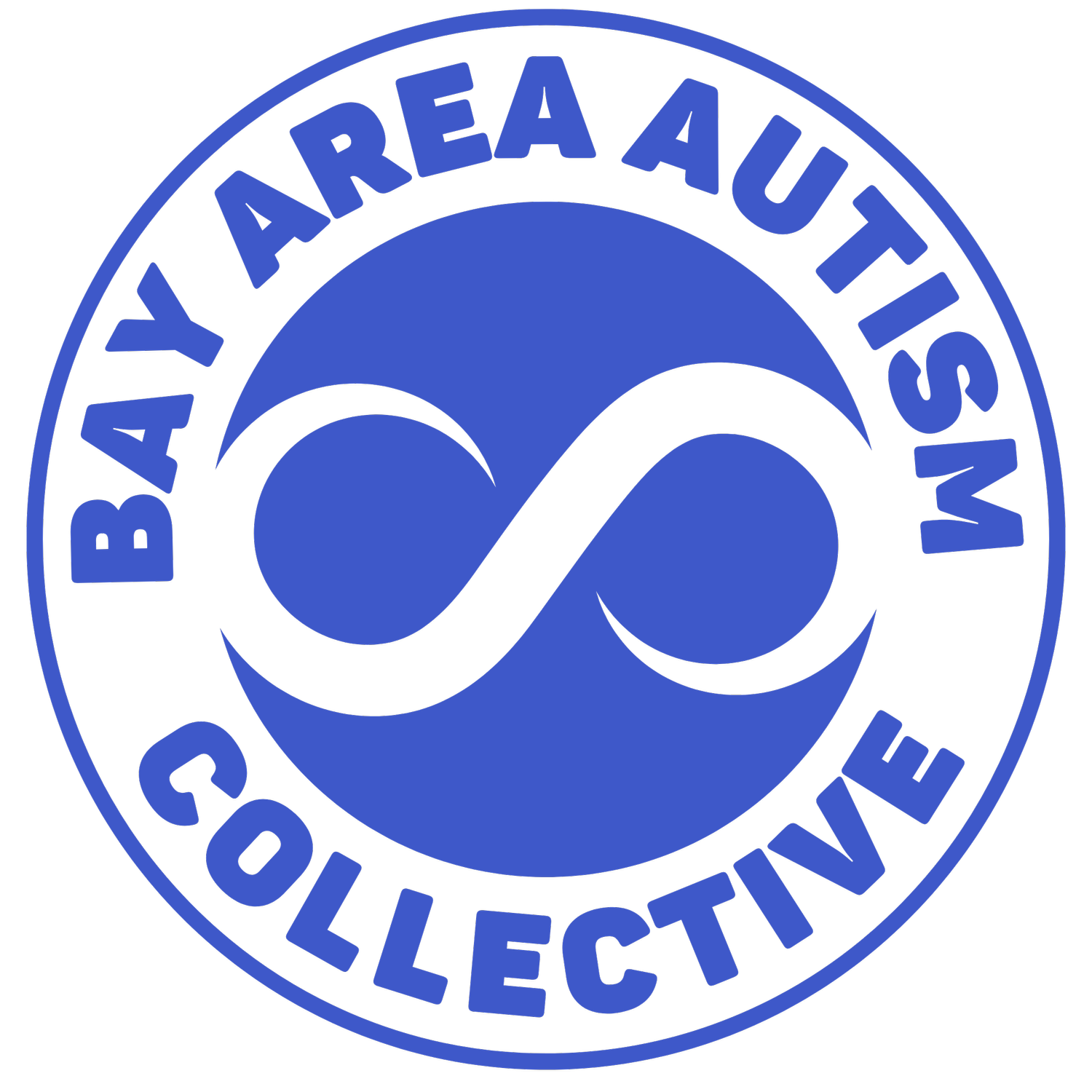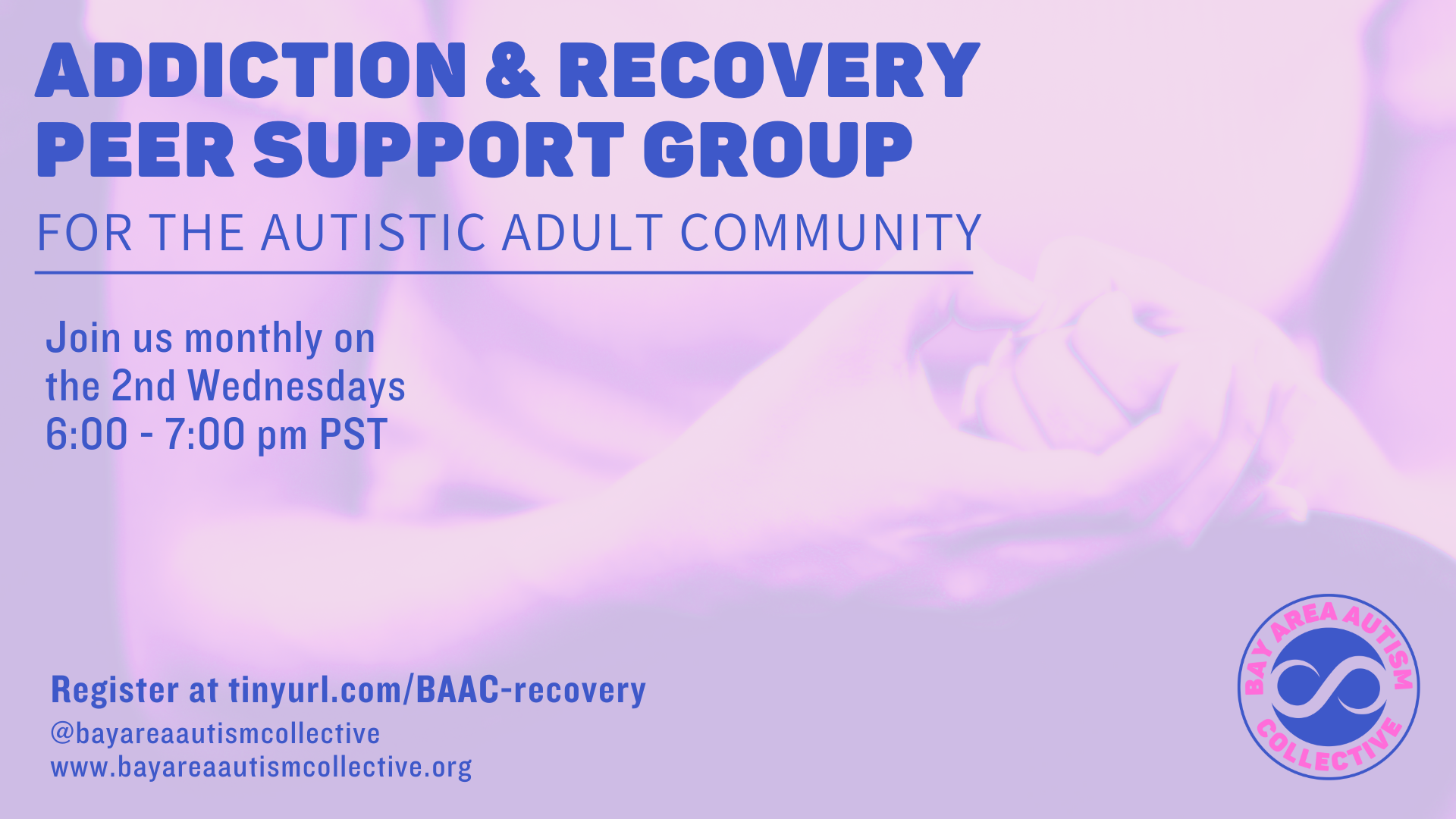
SUPPORT
Why are peer support groups needed for autistic adults?
The autistic community in the Bay Area has limited options to connect with other autistic people, especially others who are LGBTQ+, those who are also in recovery, or those who share a passion for anti-oppression work. When autistic people support each other through shared experiences, we become stronger and more capable.
Autistic people have different ways of being than allistic (non-autistic people), and those include communication and social skills. Because neurotypical standards dominate society, autistic people may experience difficulty socializing and isolation as a result.
Autism-specific peer support is critical to the health of the autism community. Autism services often end with childhood. Still, autistic adults face many social challenges, unemployment, and communication barriers across the lifespan. Bay Area Autism Collective helps to fill the social gap for autistic adults with groups tailored to their needs.
A 2009 survey of autistic young adults found that 25% had no contact with friends for at least a year, and 33% did not participate in community activities. Autisitic people have disproportionately high rates of depression and anxiety [1].
Bay Area Autism Collective seeks to provide peer support to autistic members in a group setting, facilitated by an experienced facilitator who is also autistic. We recognize the importance of having group leaders share participants' identities to introduce unique, empathetic leadership and build trust within the group.
In BAAC groups, we are ALL autistic. We have full reign to unmask and be ourselves.
No one is rushed or obligated to speak.
Members can use their voices or chat to participate - or hang out, observe, and listen.
Members aren’t obligated to have their cameras on.
Attendees can multi-task while we meet.
All are free to stim, fidget, eat, or drink, and do anything that makes them comfortable while the group meets.
"Community involvement and peer support may alleviate some of the detrimental effects of stigma on mental health outcomes by operating as a stand-in or stop-gap for traditional mental health services." [2]
Looking for Additional Support?
Suicide Prevention Hotline: 800-273-8255 or text 838255
Peer-Run Support Line: 24/7 non-emergency peer support phone line supporting California residents. Call 855-845-7415 or email info@mentalhealthsf.org
CalHope offers safe, secure, and culturally sensitive emotional support for all Californians who may need support related to stress, anxiety, depression, and worries we face. CalHOPE Connect. Chat with a natural person: CalHOPE Connect is Staffed with Support Specialists 8 AM-Midnight | Monday – Sunday. If you would like to speak with someone outside of these hours, please call the CalHOPE warmline at (833) 317- HOPE (4673); the warmline will be open 24/7.
AASCEND: “The mission of AASCEND is to build and sustain a community of support for adults on the autism spectrum, family and friends, and autism service professionals. We work together to create and implement innovative approaches in education, networking, and development to address autism’s core challenges.” AASCEND
Autistic Women and NonBinary Network (AWN): AWN is a 501(c)(3) tax-exempt non-profit. We are committed to disability justice, gender & racial equity, neurodiversity & trans liberation, focusing on transformative and restorative justice in disability spaces. Autistic Women & Nonbinary Network (AWN)
Adults on the Autism Spectrum: A weekly, supportive space for peers who identify as adults on the autism spectrum to share their successes and challenges and deepen their understanding of autism. Every Thursday: 5:30-7:00 pm peersupportservicestracking@mentalhealthsf.org serina@mentalhealthsf.org (415) 421-2926 (Voice)
Sources:
[1] Roux et al., 2015; U.S. Department of Health and Human Services, 2017
[2] Johnson, A.H. and Rogers, B.A. (2020), “We're the Normal Ones Here”: Community Involvement, Peer Support, and Transgender Mental Health. Sociol Inq, 90: 271-292.




